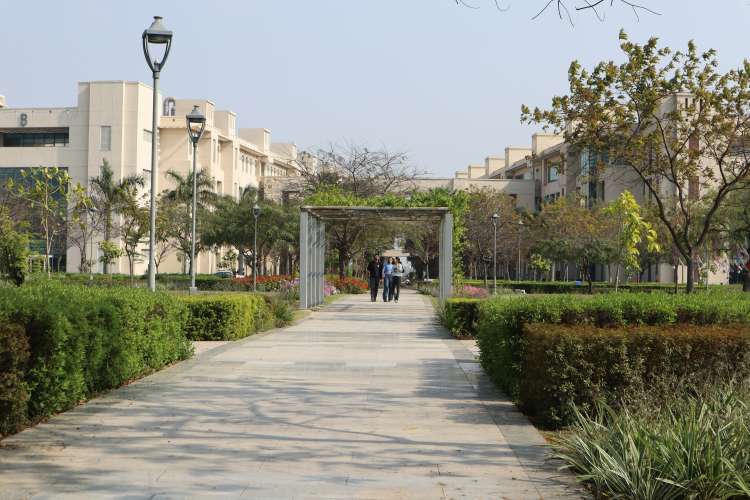Higher education in India is at the threshold of a profound transformation. It is becoming increasingly apparent that universities, as they exist today, may struggle to endure unless they evolve in response to the shifting socio-economic conditions. This shift is being driven by fundamental changes in demographics, and the labour market dynamics, compelling institutions to reconsider their roles and relevance in an era of change.
Traditionally, universities have fulfilled two core functions: knowledge production and knowledge transmission. In terms of knowledge production, universities have held a near-monopoly on advanced research through PhD and FPM programs. However, in recent years, the ecosystem surrounding knowledge dissemination has expanded, with online platforms, private educational providers, and even corporations offering training in skills once exclusive to universities.
READ | QUAD is shaping a new geopolitical order in Indo-Pacific
Universities and knowledge production
While the knowledge production function remains intact, particularly within research institutions, universities are under increasing pressure to rethink their role in transmitting knowledge. Today’s job market demands more than just a degree; it requires a combination of academic qualifications and practical skills. Employers now seek graduates who not only possess theoretical knowledge but also demonstrate critical thinking, creativity, and adaptability. This challenge is compounded by the rise of alternative education providers, such as coaching centres and online platforms, which often offer more targeted, flexible, and affordable learning experiences.
Higher education in India has undergone significant changes over the past few decades. What was once a privilege reserved for the elite has become increasingly accessible to a broader segment of the population. However, this massification of education has brought new challenges. A key issue is the disparity in access to education, with regional inequalities contributing to uneven growth in the number of institutions. While regions like Tamil Nadu, Gujarat, and Karnataka have seen a proliferation of educational institutions, others, such as Bihar and the North East, remain underserved. India’s gross enrolment ratio stands at 28.4%, a number that, while improving, still reflects significant gaps in access to higher education across the country.
Despite expansion efforts, a looming crisis awaits as demographic changes take hold. India’s fertility rate has fallen below the replacement rate of 2.1 in many regions, a trend that mirrors global declines in birth rates. As a result, universities may soon face a shrinking student population. The problem lies in the fact that policies are designed primarily for expansion, with little consideration for a contracting system. This lack of foresight could lead to a crisis where institutions that have over-invested in growth find themselves with fewer students to educate.
Importance of skilling the population
The National Policy on Education in 1986 sparked discussions about delinking degrees from employment opportunities. However, despite these early conversations, the Indian job market remains largely dependent on formal qualifications. Where one obtains their degree is still seen as a critical factor in career advancement, and credentials from prestigious institutions carry significant weight. This has fuelled the growth of private universities and colleges, as students increasingly seek out institutions that can provide the ‘right’ credentials for the job market.
Yet, there is growing recognition that degrees alone are not enough. Employers are increasingly seeking graduates who possess additional skills, such as digital literacy, problem-solving, and leadership. As a result, universities must rethink their curricula to focus not only on knowledge as knowing but also on knowledge as operation. While understanding theories, concepts, and disciplines is crucial, universities need to equip students with the practical skills necessary to thrive in the modern workplace.
Role of private and public institutions
The rise of private educational institutions has been one of the most significant trends in Indian higher education. These institutions often cater to students who can afford the high fees, offering state-of-the-art facilities and access to networks that can enhance job prospects. This has led to further stratification within the higher education system, with students from wealthier backgrounds enjoying better access to quality education than their less privileged counterparts.
Public universities, on the other hand, grapple with issues related to funding, infrastructure, and quality. There is an urgent need for people-friendly policies that address these challenges. Public universities must be supported to ensure they can provide affordable, high-quality education to all segments of society. This requires significant investment in infrastructure, faculty development, and research capabilities.
Flexible learning programmes
Another emerging trend in higher education is the increasing demand for short-duration degrees and flexible learning programs. Students today seek educational opportunities that provide practical skills in a shorter time frame. This shift reflects the changing nature of work, where continuous learning and upskilling are becoming more important than long, static educational programs.
To remain relevant, universities must embrace this shift by offering modular programs, online courses, and certification programs that cater to the needs of today’s learners. By doing so, they can play a crucial role in helping students transition seamlessly between education and employment.
The future of universities in India hinges on their ability to adapt to changing demographic, economic, and technological realities. Institutions that fail to evolve will struggle to survive in an environment where knowledge production and transmission are no longer the exclusive domains of universities. By focusing on skill development, embracing flexible learning models, and addressing regional inequalities, universities can continue to play a vital role in shaping India’s future.
In this new era, educational institutes must not only prepare students for the job market but also equip them with the skills to navigate an increasingly complex and interconnected world. This will require bold leadership, forward-thinking policies, and a commitment to reimagining the role of higher education in the 21st century.
(Dr Prashant Pareek and Dr Neha Sharma teach at Shanti Business School, Ahmedabad.)

